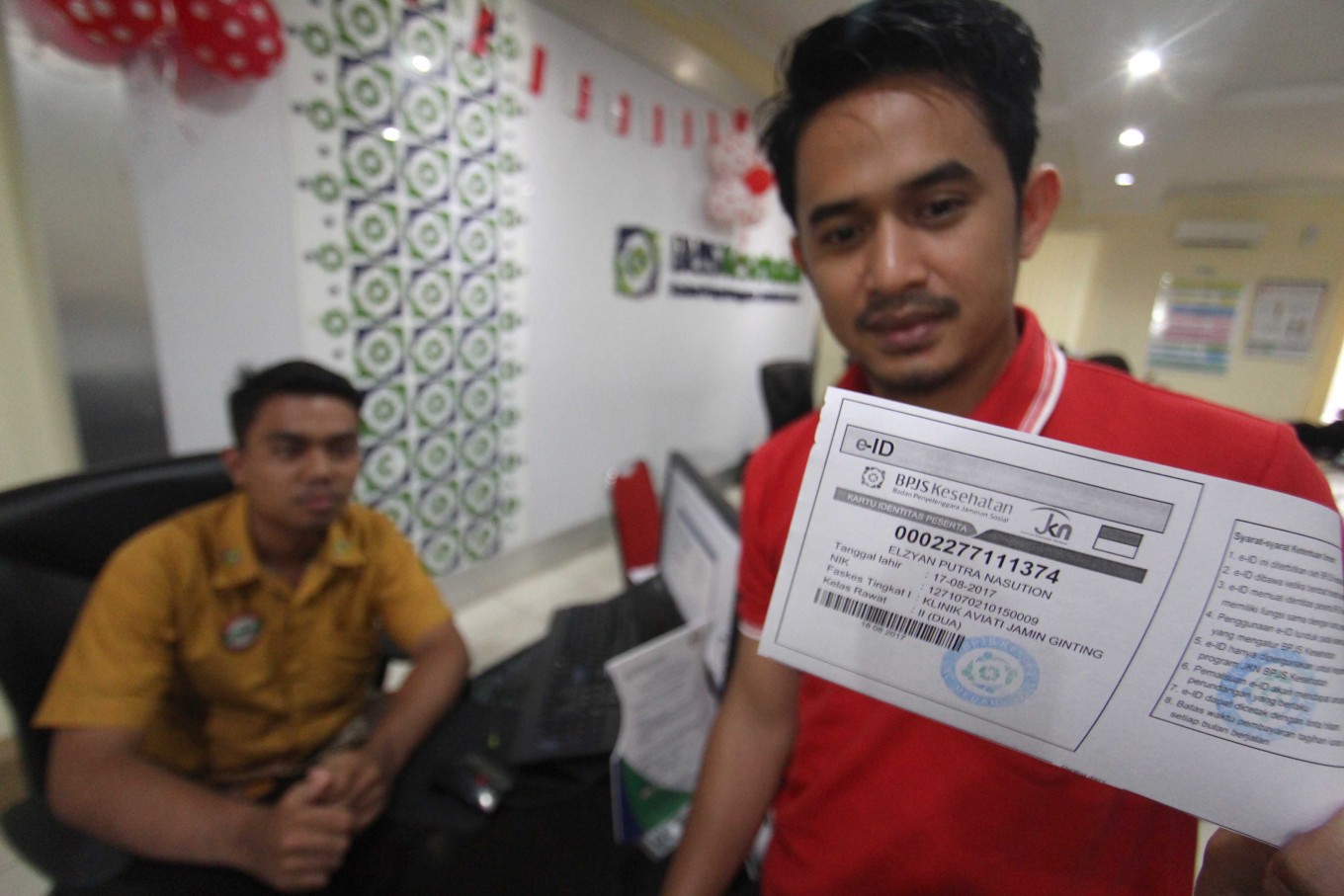 It was a beautiful dream: By early next year, all Indonesians would have access to health care at very low premiums. According to an initial plan launched on Jan. 1, 2014, 121 million people, or 48 percent of the population, were supposed to have universal health care (JKN) in the first stage.
It was a beautiful dream: By early next year, all Indonesians would have access to health care at very low premiums. According to an initial plan launched on Jan. 1, 2014, 121 million people, or 48 percent of the population, were supposed to have universal health care (JKN) in the first stage. That includes 86.4 million beneficiaries of the government’s community health protection scheme, in addition to beneficiaries of the locally funded health insurance scheme, 16 million holders of state health insurance Askes, 7 million holders of the Jamsostek social security program in companies and 1.2 million members of the Asabri insurance scheme for police and military personnel.
“Insya Allah [God willing], in the second stage, on Jan. 1, 2019, at the latest, all Indonesians will be able to benefit from the BPJS [Kesehatan],” said then-president Susilo Bambang Yudhoyono, referring to the Healthcare and Social Security Agency.
Challenges were evident for what seemed to be the world’s largest government subsidized healthcare scheme, but the stages to eventually cover the whole nation were considered feasible.
But earlier this week, only a few months before the start of 2019, it was confirmed that the BPJS is in the red, facing a deficit of almost Rp 11 trillion (US$737.9 million) as hospitals complain their claims have not been paid. Deputy Finance Minister Mardiasmo said on Monday that the government would pitch in Rp 4.99 trillion to close the gap.
Another measure to plug the shortage is a revised presidential regulation on the national health insurance program signed just last week by President Joko “Jokowi” Widodo, though the deficit had long been predicted.
Mardiasmo told lawmakers that the new regulation would enable additional funding of BPJS Kesehatan from varied sources, including tobacco excise. From half of the tobacco excise received across the country, 75 percent could help plug the BPJS deficit, he said.
Even if this year’s deficit is covered, sustainable funding of the universal health scheme for more than 266 million citizens remains questionable. We should learn from similar schemes of countries that started offering universal health care decades before us, such as the United Kingdom with its National Health Service. These lessons might help prevent further deficits and save millions of patients from being stranded, mainly those needing costly health care.
Some quick education is urgent as Jokowi’s government jumped over the planned stages of his predecessor, modeling the national Health Indonesia Card (KIS) for citizens to access health care on the Jakarta Health Card (KJS, which was issued when Jokowi was governor of the capital.
Indeed, many Indonesians only pay their premiums when they are in need of health care, while the BPJS now enables access two weeks after the latest payment is made. This leads to patients and their families venting out their frustration on health workers when denied access.
Failure to reach a quick solution will see us end up in the vicious circle of people increasingly resorting to private care, with even less investment in hospitals joining the national healthcare scheme.
No comments:
Post a Comment